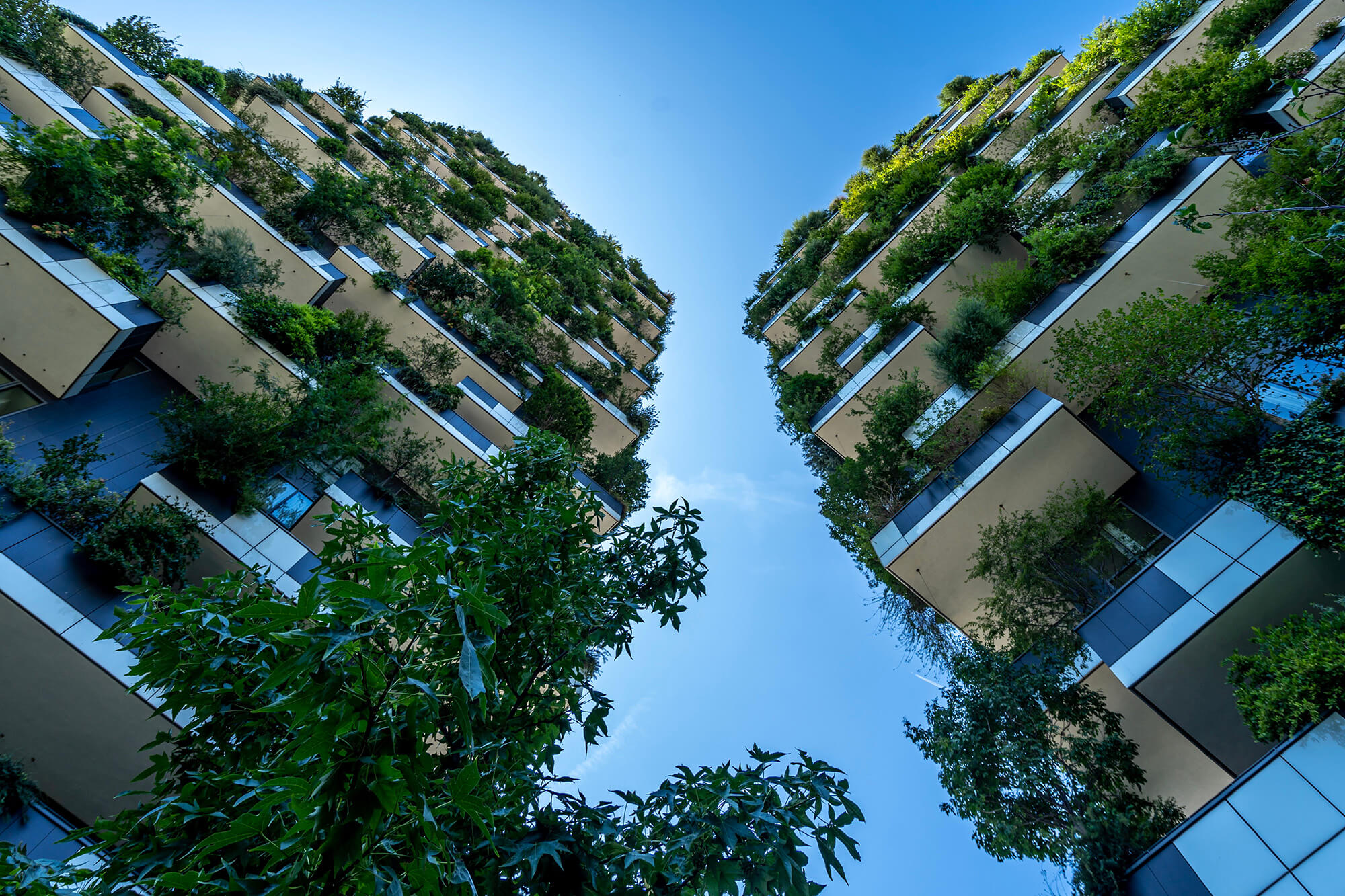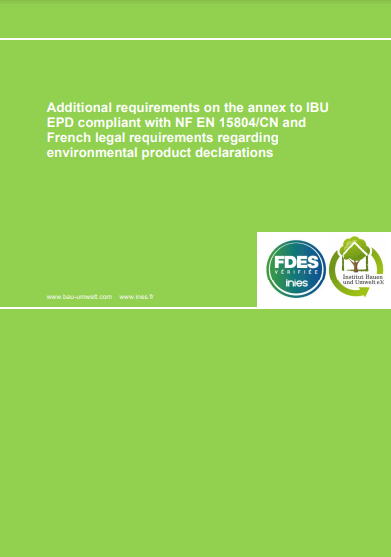FDES (Construction products)
CONTENU EN ATTENTE
Home » INIES and its data » FDES (Construction products)
A construction product is a product manufactured and placed on the market with a view to being incorporated in a durable manner in construction works or parts of them and whose performance contribute to that of the construction works, with regard to the fundamental requirements applying to these works. (cf. art. 2 (1) of RPC).
What is an FDES?
An FDES is a standardized document which presents the results of the Life Cycle Analysis of a product as well as health information with a view to calculating the environmental and health performance of the building as part of its eco-design.
FDES were initially framed from 2004 to 2014 by the AFNOR NF P 01-010 standard and since 2014 have been framed by the NF EN 15804+A1 standard and its national supplement NF EN 15804/CN. They take into account the entire life cycle of the product, from the extraction of raw materials to its end of life, including the transport, the implementation and the use of the product itself (cradle to grave). Thus, the FDES constitute a major multi-criteria tool allowing helping professionals in their choices to make a building more sustainable, with limited impacts on the environment while creating a healthy atmosphere for future users.
What is the purpose of an FDES?
An FDES provides multi-criteria, objective, quantitative and qualitative information relating to a function and a product’s lifespan in the construction work.
The main purpose of the FDES is to provide necessary and useful information to those who want to add environmental and health selection criteria on an unbiased basis to their usual selection criteria (technical, economic and aesthetic).
They are an irreplaceable tool for assessing the environmental performance of buildings.
What are the types of FDES?
- Collective FDES relate to the same typical product manufactured by several industrials.
- Individual FDES relate to a product manufactured by one industrial.
- Finally, there are also “tailor-made” FDES coming from configurators allowing calculating an FDES that suits the product used in the assessed construction work.
FDES must be verified by an independent third party accredited by a programme.

What information does a FDES provide?
Each FDES features:
- product specifications: components (raw materials, possible dangerous substances, etc.), complementary products for implementation, packaging, etc.);
- the product’s functional unit and lifetime;
- its environmental profile: a set of environmental indicators calculated over the product’s entire life cycle;
- information on health and comfort of use: contribution of the product to the health quality of interior spaces and water, contribution to quality of life in the building (hygrothermal, acoustic, visual, and olfactory comfort);
- as well as the identity of the party that issued the FDES.
How do you produce an FDES?
The most important phase in producing an FDES lies in collecting the environmental and health data of the product. Their qualities depend on those of the LCA and consequently, those of the FDES.
Some data are directly linked to the manufacturing stage, others come from upstream steps (energy suppliers, raw materials, components, etc.) and downstream steps (transport, implementation, etc.).
The LCA software chosen by the manufacturer processes all these data in order to calculate the product’s environmental indicators according to the European standard NF EN 15804 and its national supplement. At the same time, the manufacturer carries out the laboratory tests necessary to provide the information required by the standard to produce health and comfort informations.
An FDES can be realised either on the initiative of a manufacturer, or on the initiative of a professional organisation when a sector has chosen collective FDES.
FDES are valid for 5 years.
Since 1 July 2017, all FDES must be verified by an independent third party (cf: ISO 14025 standard) recognised by a verification programme accredited by the State. The INIES Programme benefits from such an agreement.



